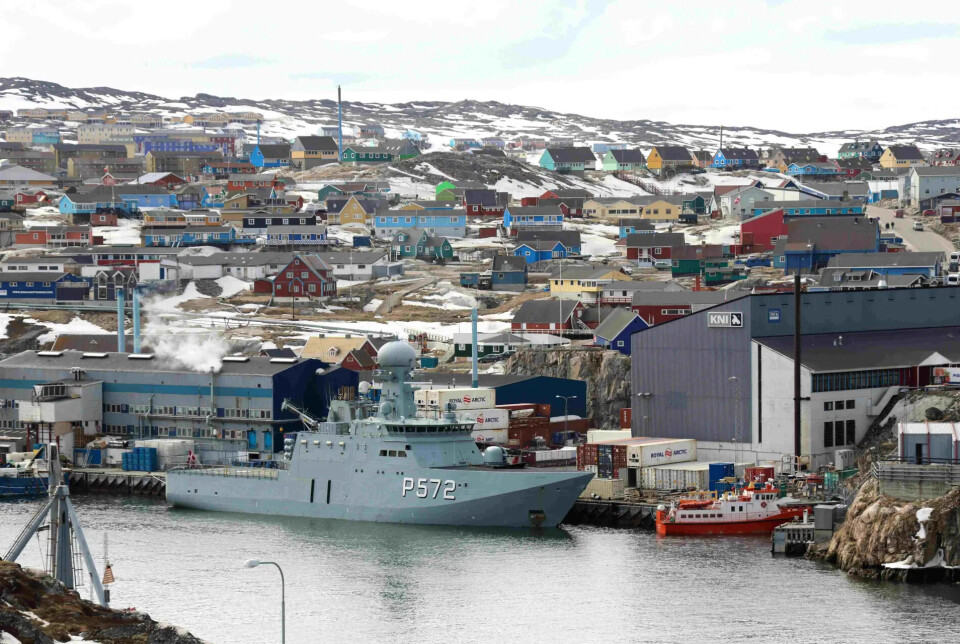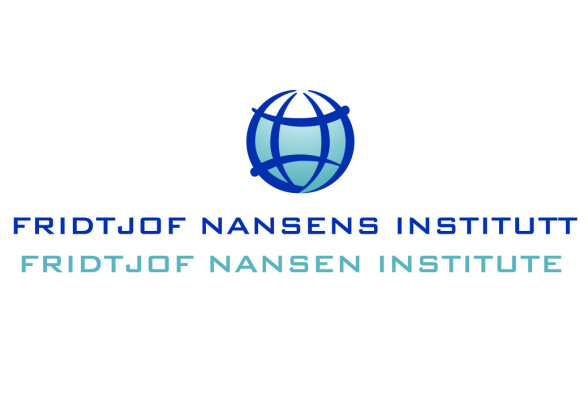THIS CONTENT IS BROUGHT TO YOU BY Fridtjof Nansen Institute - READ MORE

Power struggle in the Arctic Council: Greenland demands a leading role
The struggle for influence in the Arctic is intensifying. Greenland now sees an opportunity to claim a leading role in the Arctic Council.
Geopolitical tensions are increasing in the Arctic. The struggle for influence is intensifying, including within the most important cooperation body in the north, the Arctic Council.
When Denmark takes over the chairmanship next year, Greenland sees an opportunity to demand a leading role.
A new report from the Fridtjof Nansen Institute (FNI) shows how Greenland is pushing to lead the Kingdom of Denmark into a new Arctic era.
Is Greenland prepared to take the reins, or will geopolitical realities set limits?
Tensions reshape the Arctic
In recent years, the Arctic has become increasingly strategic in the global power struggle. Military activity is rising, and superpowers like Russia and China are pushing for resources.
Greenland has a unique opportunity, not only to demand greater influence but to actually take the lead in the Arctic. This could mark a pivotal shift in the Kingdom’s Arctic strategy.
Following Russia’s invasion of Ukraine, the Arctic Council was temporarily put on hold. The future of this vital forum remains uncertain. Russia represents nearly half of the Arctic. According to Svein Vigeland Rottem, there is no Arctic Council without Russia. Rottem is a senior researcher at FNI.
“Geopolitical tensions in the Arctic have never been higher, and the Arctic Council faces an uncertain future. This is the complex environment in which Greenland seeks to play a more central role,” says senior researcher Christian Prip at FNI, the author of the report.
Greenland strengthens its self-governance ambitions
Greenland has only 56,000 inhabitants, and independence is a long-term goal for many Greenlandic politicians. They have worked for increased autonomy for decades.
In 2009, Greenland gained significant autonomy through the Self-Government Act. However, Denmark still handles foreign and defence policy. Now, Greenland sees a unique opportunity to assume leadership in the Arctic Council.
“Greenland has a unique opportunity, not only to demand greater influence but to actually take the lead in the Arctic. This could mark a pivotal shift in the Kingdom’s Arctic strategy,” says Prip.
Rottem believes that Greenland’s ambitions challenge a longstanding power balance within the Kingdom of Denmark.
“This is not only a question of who leads, but also of how Greenland will handle the diplomatic challenges of chairing the Council. Norway’s transition of the chairmanship in 2023 was a diplomatic masterpiece," he says.
Rottem says that the same will be required of Greenland.
A natural representative for the Arctic
Arctic policy has long been dominated by major powers. Greenland’s ambitions to lead the Arctic Council could mark a considerable shift.
In the report, researchers highlight how Greenland views itself as the region's most natural representative. They have a deep connection to the Inuit people and exceptional experience with Arctic climate challenges.
“With its lived experience of a rapidly changing climate, Greenland is the voice the Arctic needs in global climate debates,” Prip argues.
Can Greenland handle the pressure?
Although Greenland has significant ambitions, it cannot manage the Arctic Council chairmanship alone.
Researchers point out that Greenland’s Ministry of Foreign Affairs has limited resources, especially when compared to Denmark’s well-established diplomatic network.
“Greenland will need Denmark’s support to navigate this complex landscape. It’s a major challenge for a small diplomatic service,” says Prip.
Rottem emphasises that a successful chairmanship requires close cooperation within the Kingdom of Denmark and with the other Arctic states.
“While progress has been made in negotiations, important details remain to be clarified to ensure a smooth transition. There's also scope for Greenland to exchange experiences with Norway on how best to ensure the Arctic Council’s survival,” says Rottem.
References:
Andreeva, S. & and Rottem, S.V. How and why the Arctic Council survived until now – an analysis of the transition in chairship between Russia and Norway, The Polar Journal, 2024.
Prip, C. Denmark or Greenland in the Arctic Council chair?, FNI Report 5/2024. Lysaker, FNI, 2024.
———
Read the Norwegian version of this article on forskning.no

This content is paid for and presented by Fridtjof Nansen Institute
This content is created by Fridtjof Nansen Institute's communication staff, who use this platform to communicate science and share results from research with the public. The Fridtjof Nansen Institute is one of more than 80 owners of ScienceNorway.no. Read more.
More content from Fridtjof Nansen Institute:
-
“It's been a long time since we've seen so many positive developments in such a short period. We may indeed be entering a turning point for nature”
-
Russia could lose its big chance in the global gas market
-
Russia pushes for a fossil economy. Can China stop them?
-
What does China aim to gain in the Arctic?
-
Where do the metals in your electric car come from?
-
War in the Arctic? Researchers debunk three myths about the High North





































